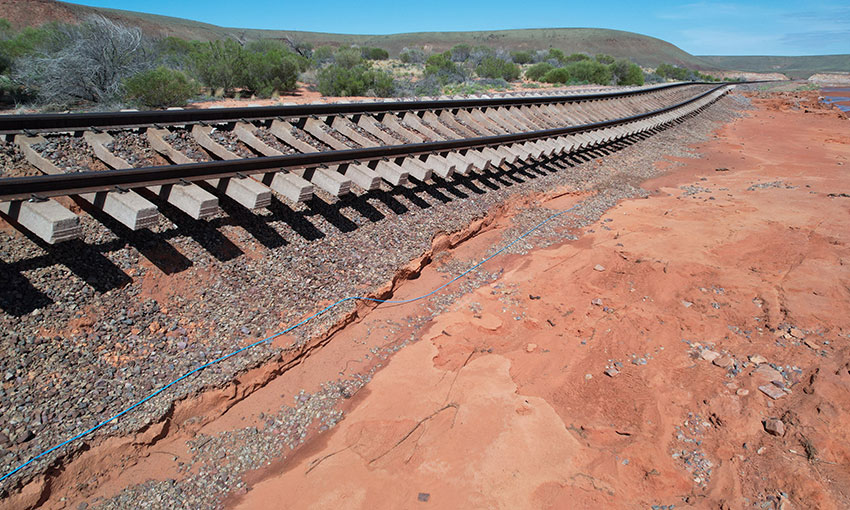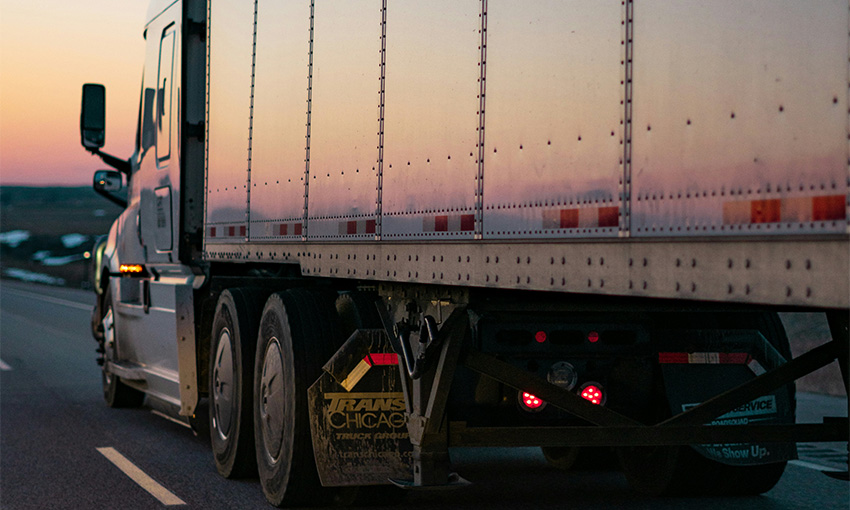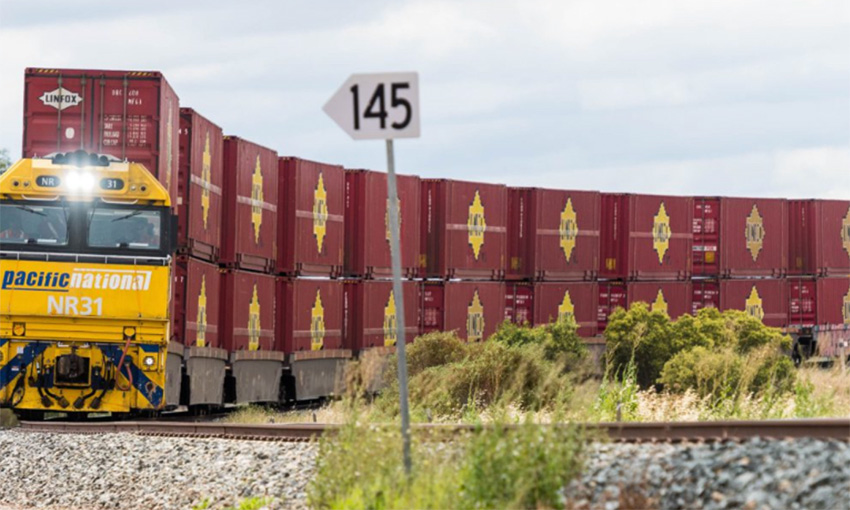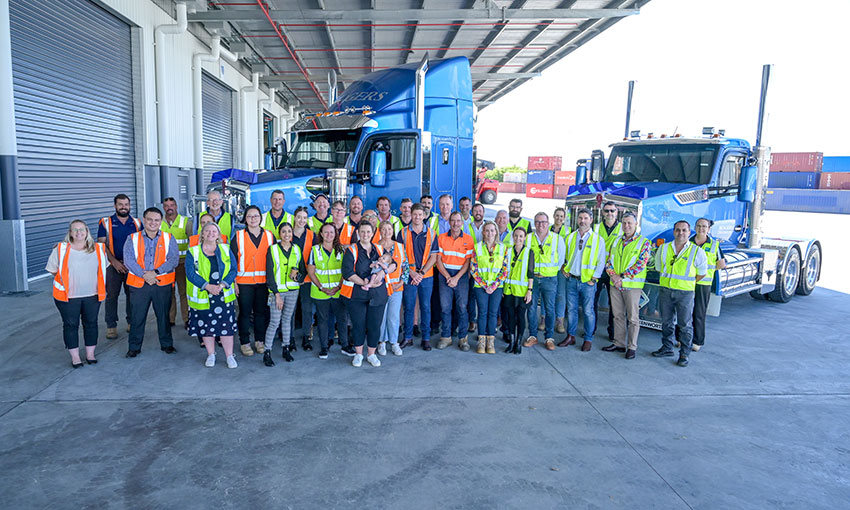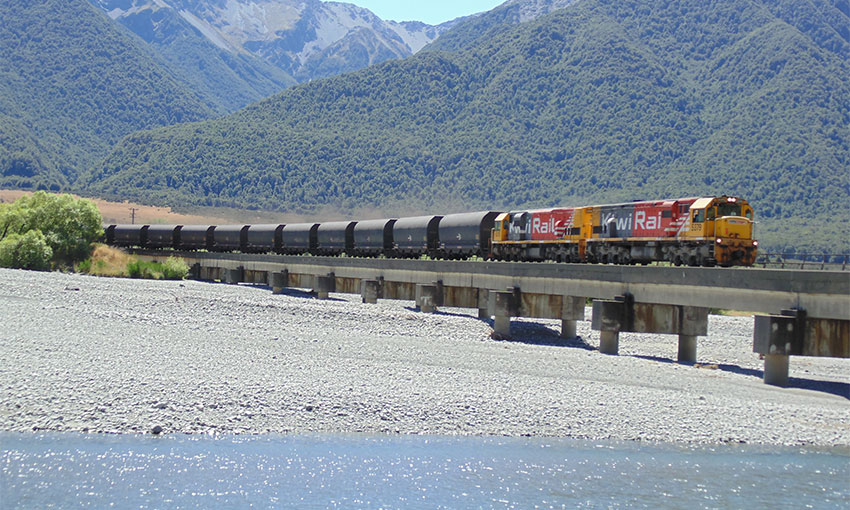STAKEHOLDERS across the national freight industry are working to deliver food supplies to Western Australia following floods in South Australia.
The floods have severed critical rail networks, disrupting the movement of freight and necessitating a series of strategic measures to keep supplies moving.
A spokesperson from the Australian Rail Track Corporation said almost 100 people are on the ground working dual shifts to repair the damage.
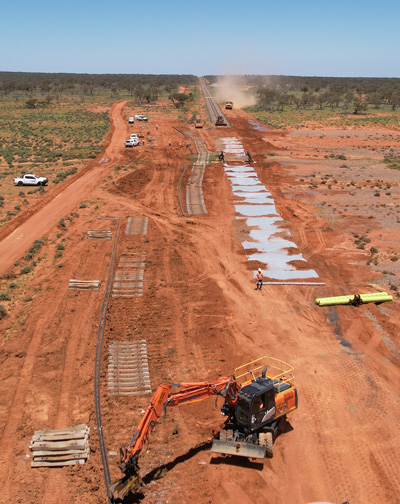
“As a result of the volume of water that was recorded, we are required to rebuild access roads from the highway to the rail network to enable the movement of heavy machinery to site,” they said.
“Following an extensive and detailed assessment of all track, ARTC can advise completion of the repair works is expected to occur by mid-February.”
In the meantime, Woolworths and Coles have announced purchase limits to customers in Western Australia on a range of products including rice, sugar, eggs and frozen produce.
Coles extended purchase limits to Northern Territory customers for products including milk and sausages.
Woolworths said it is working with trucking carrier partners to deliver freight to Western Australia, but the use of road transport had reduced load capacity
Karl Weber, Woolworths general manager for Western Australia, said the loss of the freight link will continue to impact product availability for some time.
“We’ve placed temporary purchase limits on selected categories to help ensure more customers have access to essential products while we work through the disruption.”
Mr Weber noted more than 80% of Woolworths’ fresh fruit and vegetables and a large volume of dairy and meat products are sourced from within the state.
“Together with our transport partners, we’ll continue to do everything we can to get as much stock as possible into Western Australia by road and ship,” he said.
On 31 January, in response to the floods, the federal government exempted some voyages to Western Australia from measures in the Coastal Trading (Revitalising Australian Shipping) Act 2012.
The exemption remains in force until 31 March and effectively allows unrestricted coastal shipping into Western Australian ports by containerships and ro-ro vessels.
Main Roads Western Australia has announced that, from Friday 4 February, special road freight permits would be provided to allow extra trucks onto Western Australian roads.
Under the temporary measure, larger road trains will travel in convoys to deliver supplies into the state.
The National Heavy Vehicle Regulator has also released a temporary notice to support the movement of essential food items from South Australia to Western Australia under current circumstances.
The National Class 3 Supplementary Access (Western Australia Assistance) Exemption Notice 2022 (No. 1) will provide temporary access for some class 3 heavy vehicles.
NHVR CEO Sal Petroccitto said the notice will support a number of routes from the suburb of Port Augusta West via the Eyre Highway and the Lincoln Highway.
“This is another crucial step to enable the supply of food and other essential goods between the eastern states and WA while the east/west route networks are impacted by flooding,” he said.
The notice follows the release of the National Class 2 Supplementary Access (Northern Territory Assistance) Authorisation Notice 2022 (No.1) last week.
It provides temporary access for some class 2 heavy vehicles to specified routes from South Australia to Queensland via New South Wales to join the Road Train Type 2 Network from Queensland to Darwin.
“We are working with the Commonwealth government, other state governments, industry and retailers to ensure we can continue to move essential goods and supplies into Western Australia,” WA transport minister Rita Saffioti said.
“We will continue to engage with all parties while the rail line is being fixed – we are all in this together.”
Pacific National CEO Paul Scurrah noted the move to open a freight “land bridge” across the Nullarbor, which will allow for the delivery of containers.
“Getting containers across the flooded regions by roads and back onto trains at Kalgoorlie shows the benefits of the whole freight and logistics sector working together,” Mr Scurrah said.
“We thank the NHVR and heavy vehicle industry for their support in helping to find a solution to keep essential freight moving.”
Australian Trucking Association president David Smith welcomed the solution, which would help reconnect the east and the west.
“It’s great to see all parties including the state governments and the NHVR working together to ensure we keep these vital supply lines open despite the impacts of the deluge,” he said.
The NHVR has advised other vehicles to exercise caution on the roads while the notices are in place, as the road trains are much larger than those normally operating on the prescribed routes.

